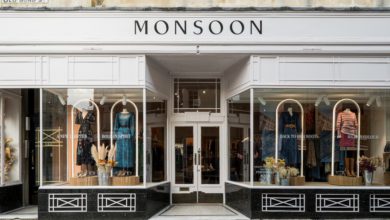Brands vs the people: the rise of independent online retailers

Register to get 1 free article
Reveal the article below by registering for our email newsletter.
Want unlimited access? View Plans
Already have an account? Sign in
After the hard knock the UK’s retail sector took following the 2008 financial crash, things are finally starting to look brighter. Consumers are driving this up-turn with their clicks; with the majority of Gen Z and Millennials now choosing to do most of their shopping online. This year, more than a fifth of total UK retail sales are predicted to be from ecommerce retailers – that’s £93.23bn from online sales alone. It’s this consumer move towards digital-first shopping that has formed the backdrop for the online independent retailers’ rise.
A recent YouGov poll found that 43% of consumers were more likely to shop with an independent retailer than a big corporate brand because they made them feel valued as a customer. As the saying goes, you may not be able to beat them on price, but you can beat them on service. This is exactly what the new wave of online indie retailers are doing; putting customers at the heart of everything they do. Some indies will thank customers with physical notes and gifts after they buy something – adding that personal touch consumers love that big brands just can’t always deliver.
The rise of social media has also helped independent retailers create and keep a personal connection with their customer base. With 326 million active daily users on Twitter alone, indies can interact with their customers in a more informal way, while still providing the high quality customer service millennials and Gen Z expect. Instagram has also opened the door to being able to show off stock in more natural ways and creates the opportunity for happy customers to become advocates; reposting and sharin g pictures of products from their favourite small sellers on their own channels. The always-on nature of social media fits perfectly with indies’ personalised customer service; as they can reply to queries and complaints much more quickly and effectively than the big brands.
One of the biggest trends indies have been able to tap into, that’s definitely contributed to their increasing success, is the growing desire for instant gratification. Today’s Gen Z shoppers want to be able to search on their mobile, pay with one click and have their purchase in hand in less than 24 hours; all without leaving the comfort of their house. While all retailers have to balance stock with demand, online independents are able to maximise their low overhead costs to offer greater ranges of products by playing in a purely digital space.
While big brands have their own big budgets to pour into marketing and advertising campaigns, smaller indies are able to take advantage of the growing number of online marketplaces to reach more eyeballs and paying customers. Instead of fighting, and paying, to improve SEO and brand awareness, selling in marketplaces like Notonthehighstreet, eBay and Etsy which attract millions every day brings almost guaranteed digital footfall across online store windows. Not only has this enabled indies to capture more customers than would otherwise be possible, in some cases it’s also created a cult-like following among customers that has eclipsed the larger more established brands; Nasty Gal being a prime example.
This rise in online independent stores is without a doubt being driven by customer demand; a recent YouGov survey found 2 in 5 consumers would prefer to shop at independent stores rather than the big chains. The main reason given was that they don’t like the way large retailers treat them as “a number” and don’t feel valued as customers. With a strong focus on personalised customer service and a savvy use of social media platforms to create a two-way conversation with consumers, online independent retailers will only continue to increase their market share in the coming years. This wave of support for indie shops is a sure sign that the desire for independent retailers is here to stay.
Philip Belamant – CEO and founder of Zilch for Business







